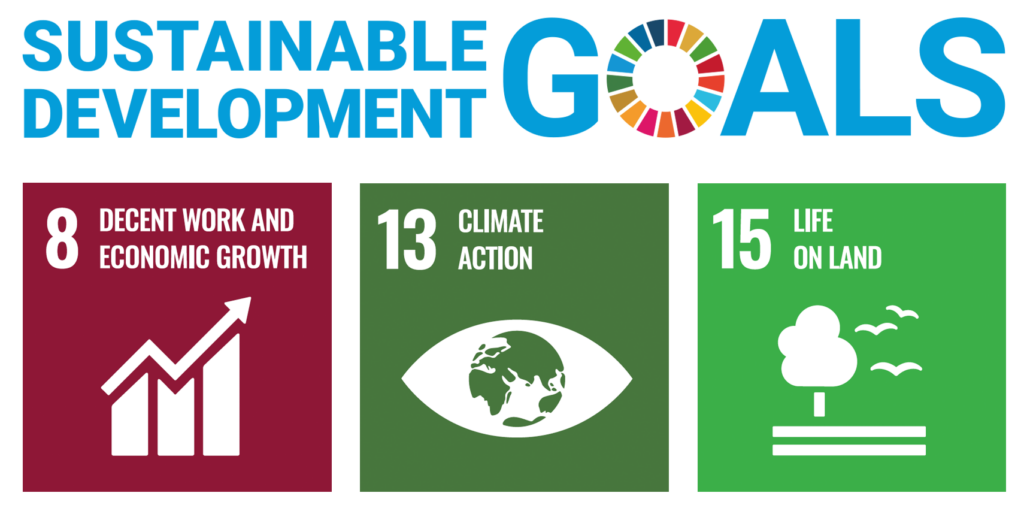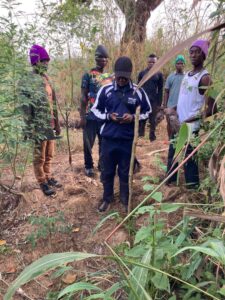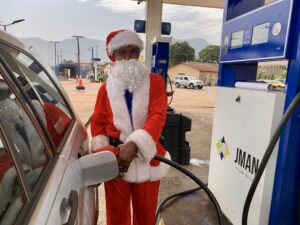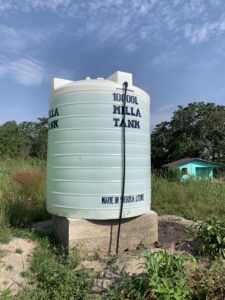Your company forest is created here
Your company forest is created here
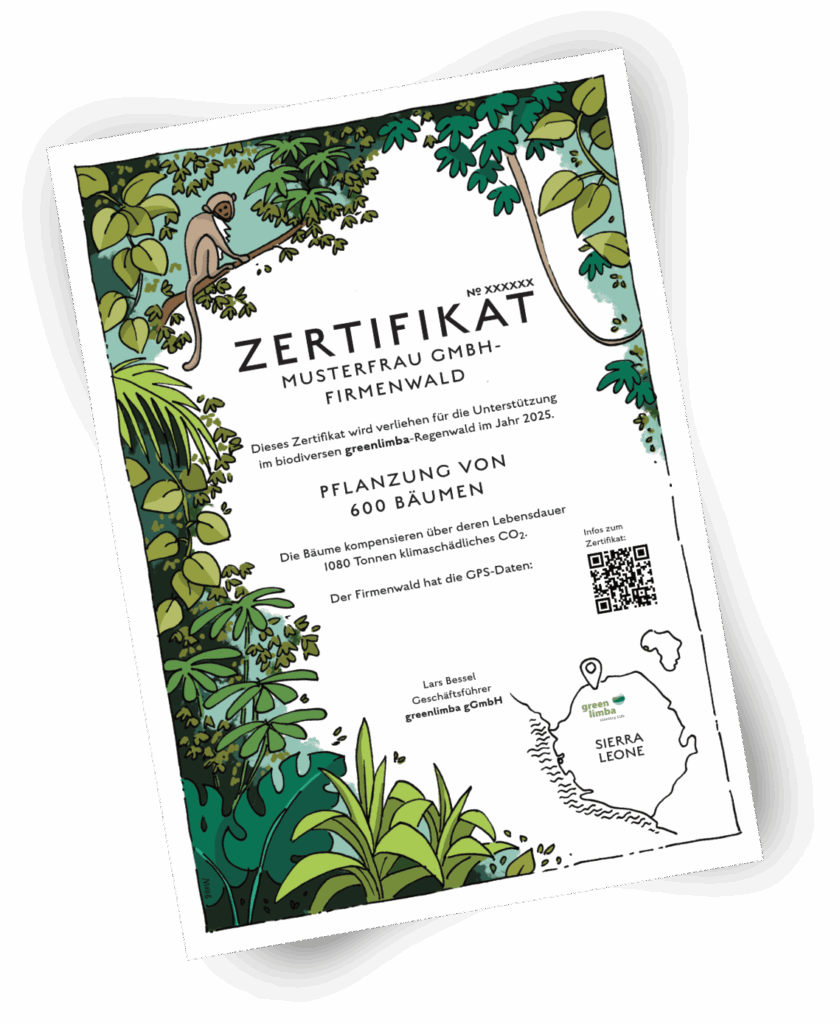
Plant a new, biodiverse and sustainable rainforest with us in West Africa. With this investment, you not only offset your CO2 emissions, you also promote biodiversity and create a strong impression in the area of human resources as well as in marketing and company presentation!
Experts in reforestation
Experts in reforestation
We support companies in implementing their sustainability goals efficiently and authentically. Our projects combine clear CO₂ performance, biodiversity and social impact – ideal for CSR, ESG and credible reporting. Discover our USPs and the added value for your company.
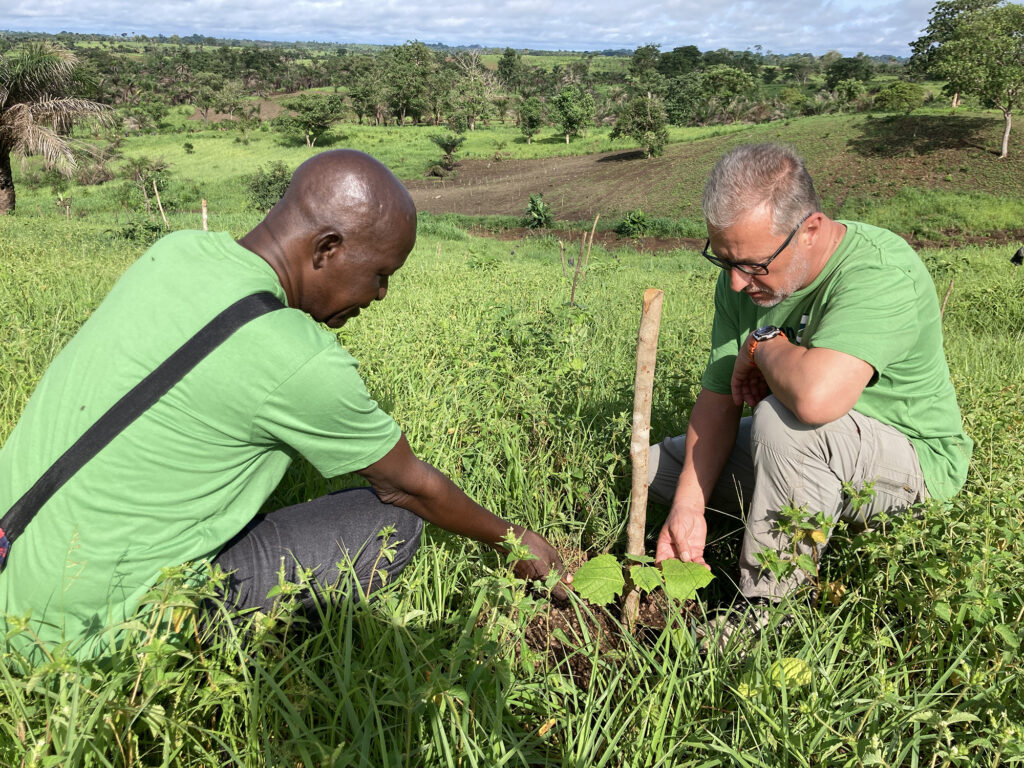
Biodiversity is the key
Only 10% of all afforestation worldwide is biodiverse.
For us, this is the only sustainable approach. That’s why we plant a healthy mixed forest of more than 30 local tree species. No monocultures. Never. Tree diversity means sustainable climate protection.
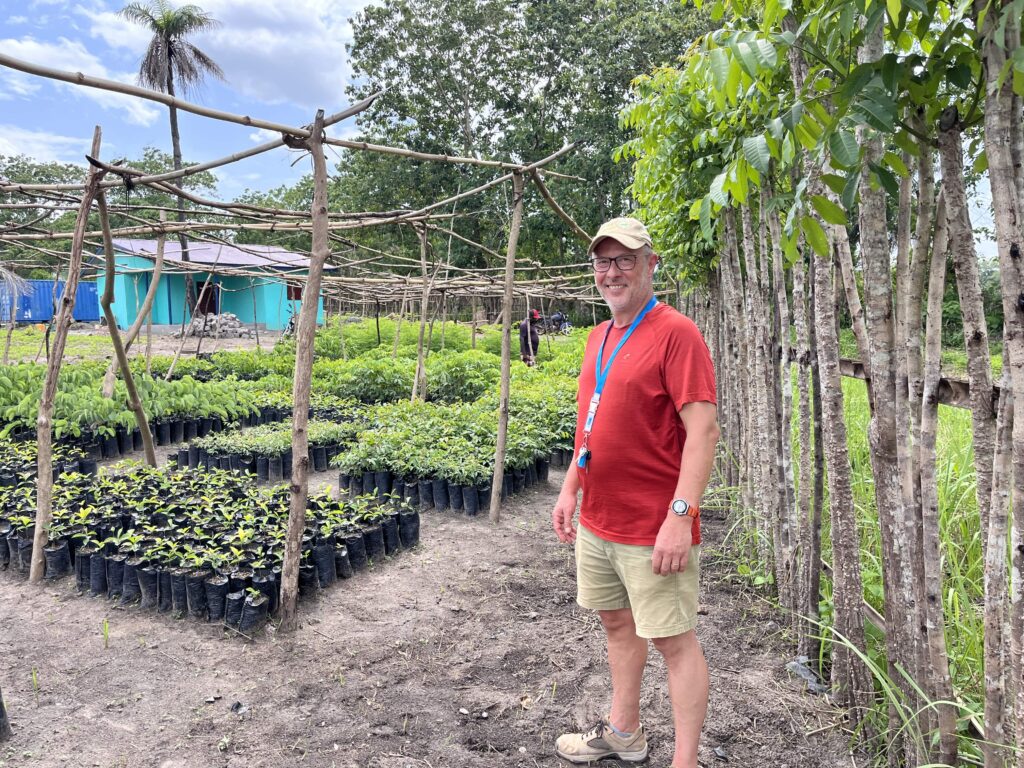
Our central forest nursery
We can grow over 30 local tree species in our central tree nursery.
Biodiverse forests are sustainable forests. That is why we are particularly proud of our forest nursery, where we can also grow slower-growing, valuable trees thanks to our many years of experience.
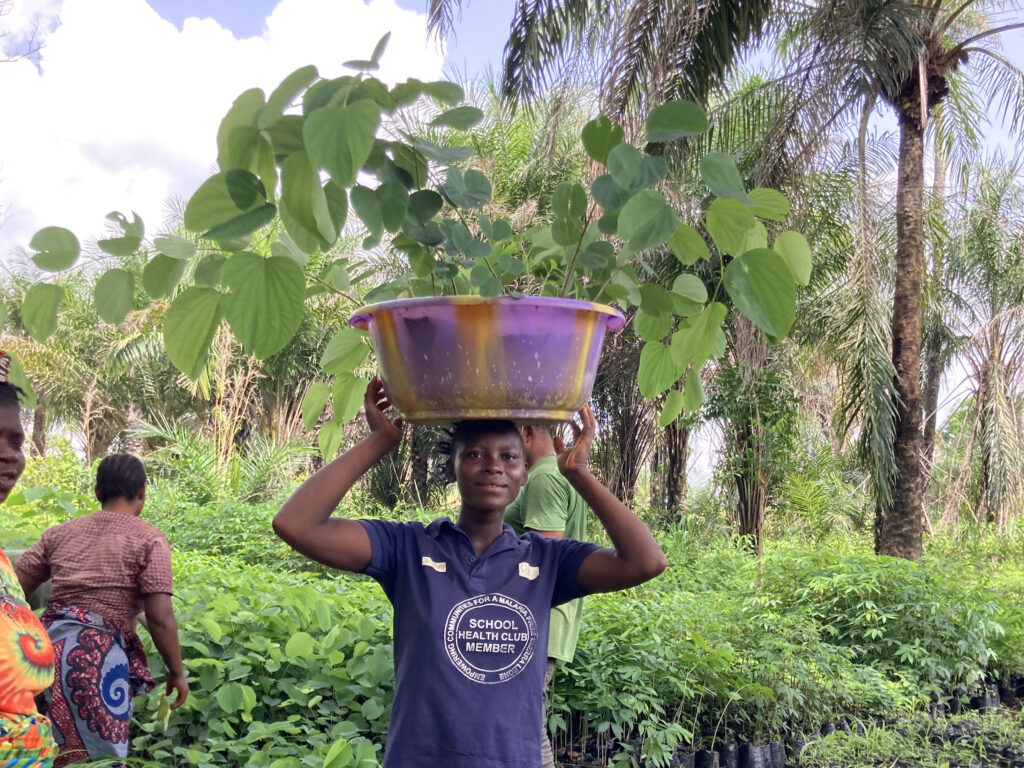
No future without women
Strong women are the key to sustainable development.
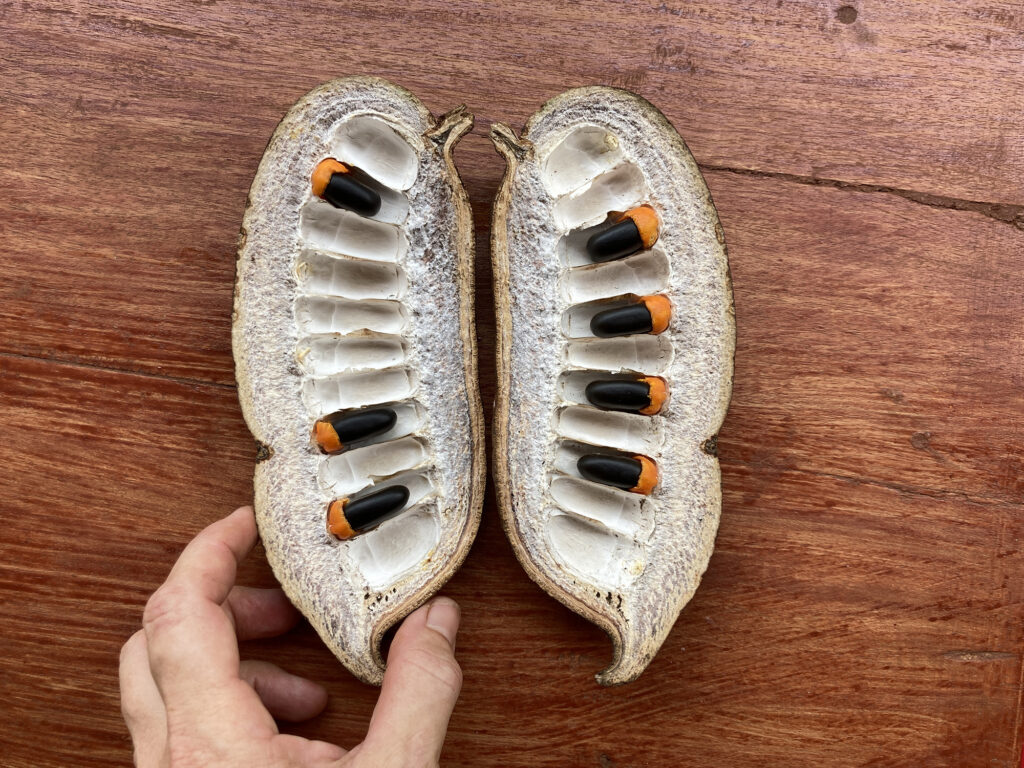
Protection of endangered tree species
We protect endangered species from extinction, including important medicinal trees.
These seeds are of the “Afzelia africana”, a tree species classified as endangered on the “Red List”. By propagating them in our tree nurseries, we protect many of these endangered species from extinction, including important medicinal trees. Of course, we only plant tree species native to West Africa; invasive neophytes from other continents are not welcome in our nurseries.
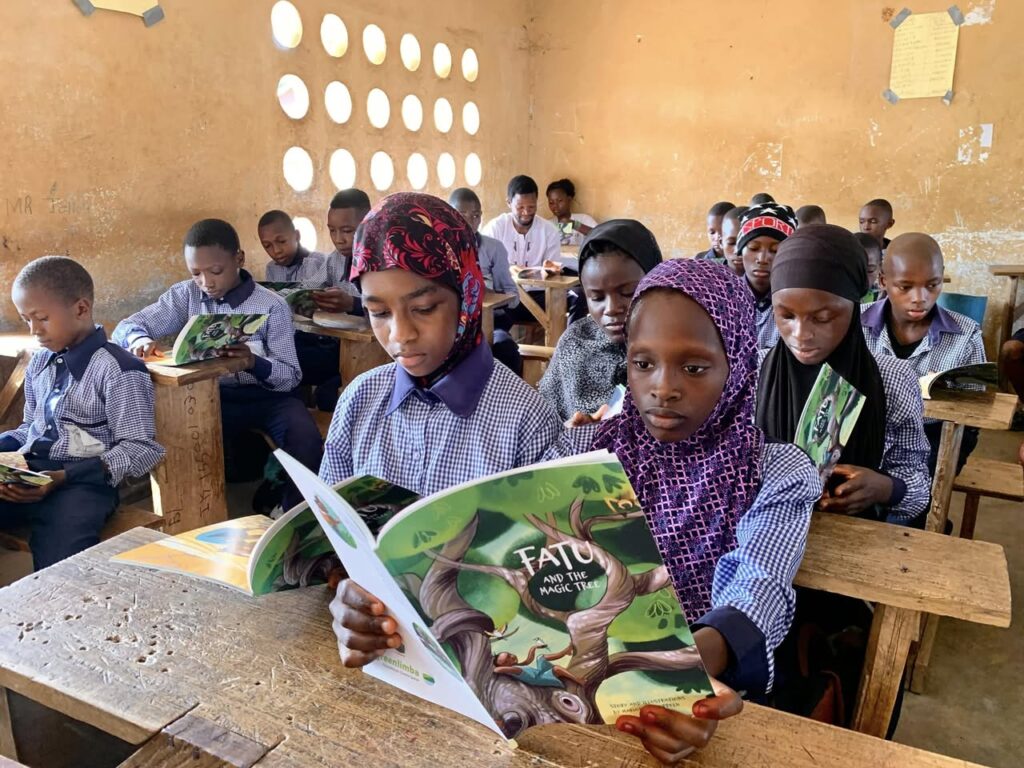
Clever children
Environmental education is at the heart of our work.
Only those who are aware of the importance of trees will continue to protect them in the future. With our book “Fatu and the Magic Tree”, we reach the hearts of children, who enthusiastically learn how valuable a forest is. And through the children, we reach their parents and families. In addition, there are radio shows on many topics relating to forests and biodiversity, through which the rural population learns, for example, how a good harvest is linked to the existence of healthy forests.
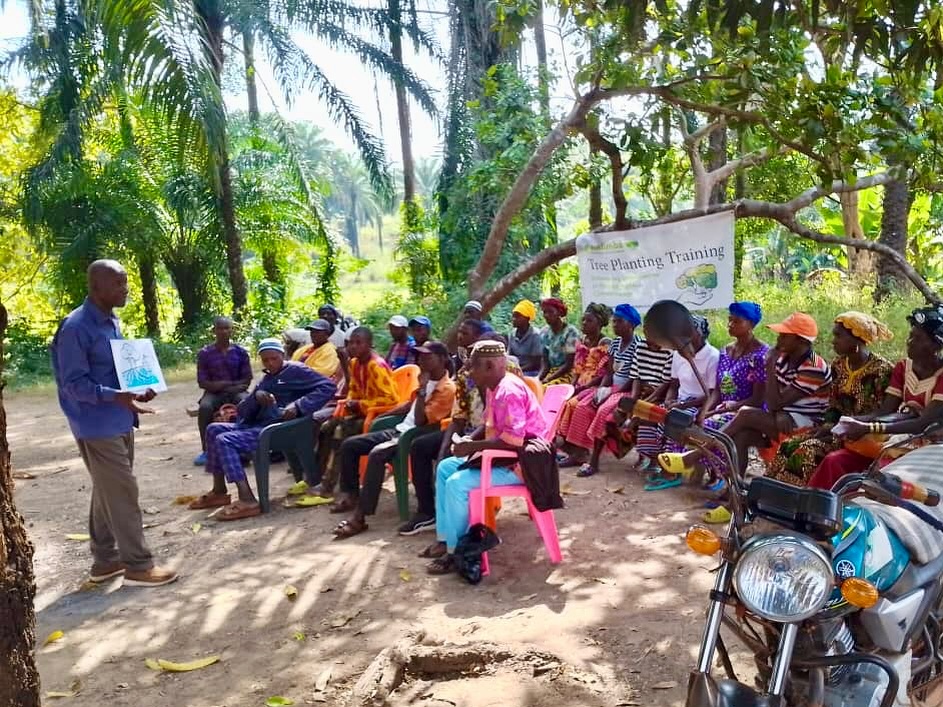
Clever Farmers
Better yields protect the rainforest.
In addition to charcoal production, ineffective agriculture is the main reason for deforestation in West Africa. We train farmers in permaculture techniques for better yields. This helps to fill hungry bellies, generate income, minimize land consumption and thus protect remaining rainforests.
Are you a private customer interested in the project and CO2 offsetting?
Are you interested in planting your company forest with us? Offset your CO2 footprint? Making a visible and tangible difference? Retain your customers and attract new employees? We would be happy to develop a customized package for your needs.
For optimum visibility of your investment, we provide you with a certificate and mail binder designed by an artist. Share your enthusiasm and commitment!
The Giants of the Forest
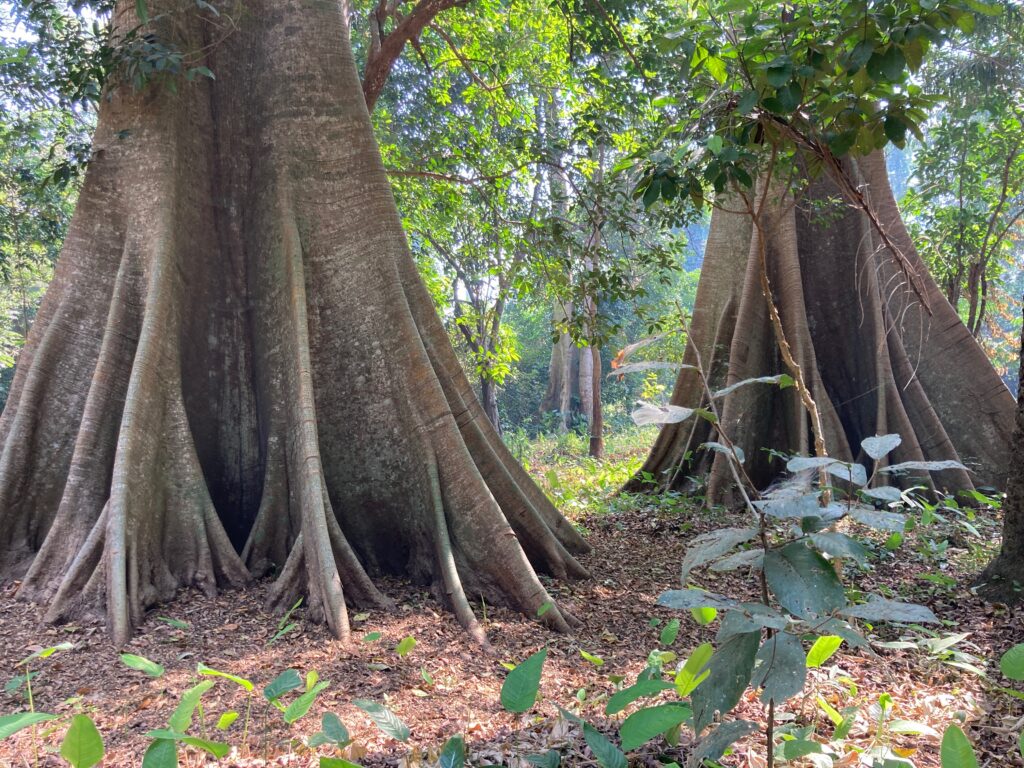
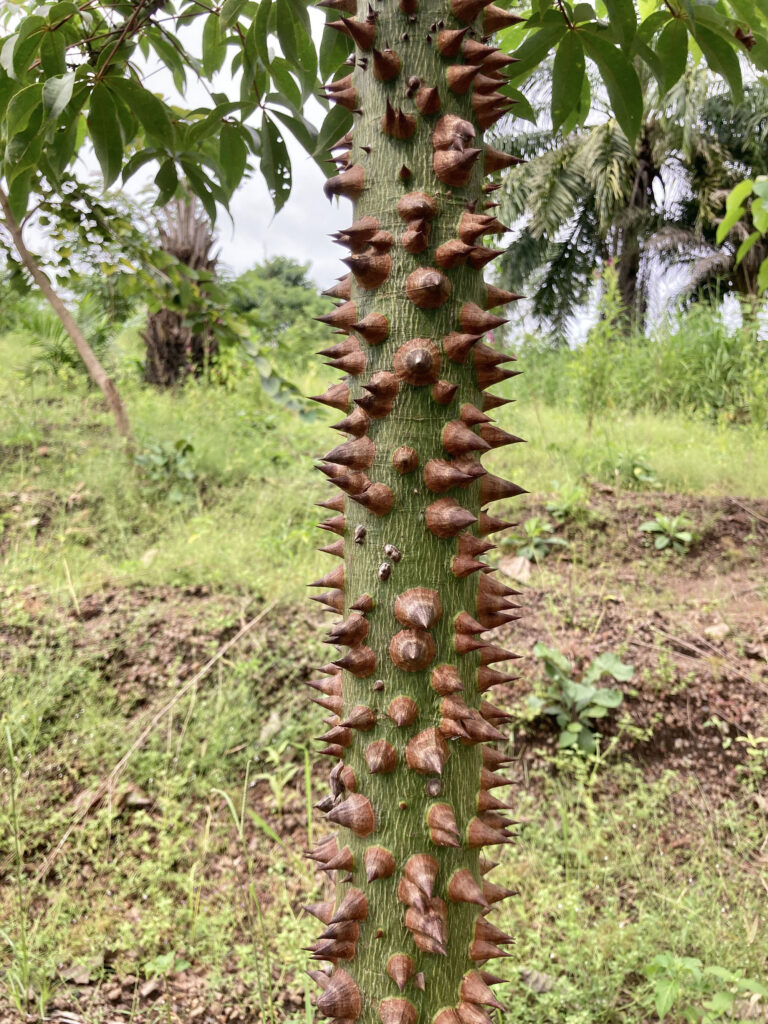
The Giants of the Forest
The Cotton Tree (Ceiba pentandra) is one of the giants of the rainforest, more than 40 meters high! With its impressive buttress roots, it is one of the most impressive representatives of its sort. And it is already impressive as a small tree: its young trunk is covered with really sharp spines, making it a strong and resistant pioneer plant. Its life expectancy is several hundred years.
3 x pro West Africa
3 x pro West Africa

The vegetation period in West Africa is almost twice as long as in Central Europe. As there is no cold winter here, the trees grow faster and store carbon much quicker. This means faster results in the fight against global climate change.

West Africa offers a lot of unused space for reforestation. In much more densely populated Central Europe, there is nowhere near as much fallow land available as here.

West Africa is characterized by very friendly people but unfortunately also by poverty. There are no funds available for the necessary adaptations to the climate change caused by the Global North. We also help to achieve a little more climate justice.
Exotic Wildlife
Exotic Wildlife
With the diversity of the trees, the animal world is also moving back in with all its diversity, from insects and bats to reptiles, birds and mammals. Most children have never seen a monkey or an elephant. The lively and sociable western green monkey (Chlorocebus sabaeus) is one of the first monkeys to return to the new forests.
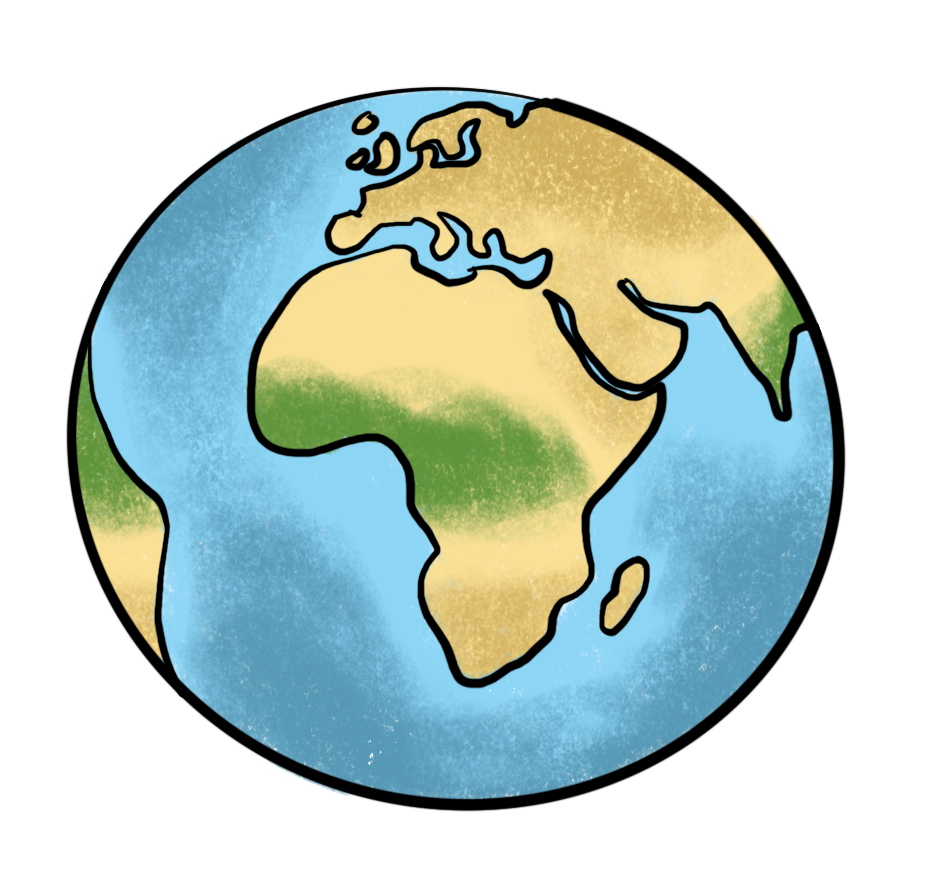
Our Green Lung
Our Green Lung
To ensur sustainabilty, planting only takes place where there was already rainforest, leaving enough land for the communties to expand housing and farmland.
With the People
With the People

There are regions in Africa where the indigenous people are being driven out by force of arms in order to protect the rainforest. With support from Europe. We strongly reject this approach. We are shaping a future with the local people, we are partners in the fight against climate change. That’s why we say “Kushe”, “Seke” and “Uwaly” at our “Tree Planting Trainings”, depending on the region, instead of just saying “Hello”.
(English is the official language in Sierra Leone, but in the rural areas, people speak Krio, Temne, Limba – and 20 more languages!).
20% Fruit Trees
20% Fruit Trees
In addition to the mixed forest, we plant 20% fruit trees on our reforestation areas. The cashew tree is currently very popular here, but mangoes, oranges, limes and tamarinds are also planted on these areas for the direct benefit of the community. Timber extraction, on the other hand, is strictly prohibited in our forests.
Ensuring Important Medical Resources
Ensuring Important Medical Resources
Nearly all trees we plant also have medicinal significance for the indigenous population. The trees therefore also preserve traditional medical knowledge. People in the rest of the world also benefit from this: 25% of medicines in the Global North come from rainforest plants.
News
News
Here you can find the latest news about our forest projects
With its commitment in Sierra Leone / West Africa, greenlimba proudly fulfills goals 8, 13 and 15 of the UN 2030 Agenda for Sustainable Development.
